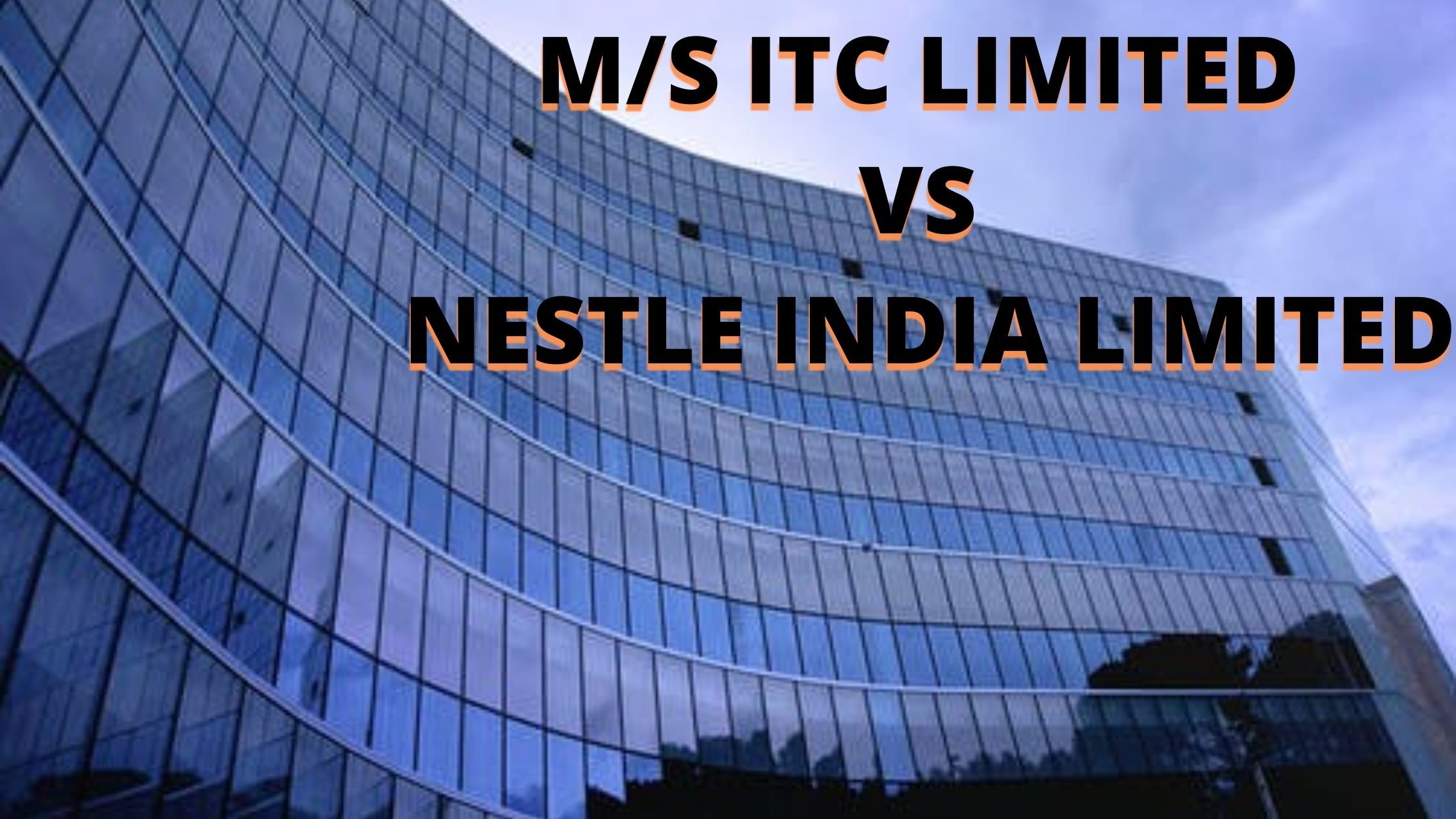Case: M/S ITC LIMITED VS NESTLE INDIA LIMITED
In the High Court of Judicature at Madras Coram: The Honorable Mr. Justice C. Saravanan M/S ITC Limited … Plaintiff VS Nestle India Limited …Defendant

M/S ITC LIMITED VS NESTLE INDIA LIMITED
In the High Court of Judicature at Madras
Coram: The Honorable Mr. Justice C. Saravanan
M/S ITC Limited … Plaintiff VS.
Nestle India Limited … Defendant
FACTS OF THE CASE
Plaintiff was the leading private sector company in India which was dealing in the making of noodles and introduced Sunfeast Yippee as its brand name. The said product came in two kinds first was the Yippee! Magic Masala and the other one was Classic Masala. Consequently, Plaintiff got to know the fact that the defendant has also introduced instant noodles under a similar sort of marketing named ‘MAGICAL MASALA’. Plaintiff filed a suit against the defendant for passing off saying that the use of the name ‘MAGICAL MASALA’ by the defendant refers to the passing off of the defendant‘s product because the plaintiff product is being sold under the name of ‘MAGIC MASALA’.
The plaintiff was of the view that their product ‘MAGIC MASALA’ has sustained its image in the market is from a very long time and hence has got the uniqueness because of great quality and wide reach and image in the market and is related with the plaintiff’s brand name alone. Everyone in the market whether retailers or common people ask for the noodles by the name ‘MAGIC MASALA’. Plaintiff alleged that the defendant has used the term ‘MAGICAL MASALA’ due to the severe competition and thus relied on unfair competition. The plaintiff also stated that the defendant has many kinds of noodles, therefore there is no need to opt for the specific name ‘MAGICAL MASALA’.
Following the claims made on the defendant, the side argued that the use of the term ‘MAGICAL MASALA’ by the defendant comes under the permitted use and is embodied under provisions of Section 30(2) (a) of the Trademarks Act. On the originality, the defendant argued that he is using the term ‘MAGICAL MASALA’ to tell the customers about a flavor and it in no way signifies the origin where it has come from. and ‘MAGICAL MASALA’ is a spicy feature and describes the quality of Masala used, which is sold along with the product in a small sachet by the name of ‘TasteMaker Magical Masala’. The defendant further argued that the law of trademarks or provision of passing off does not give permission to any interference in the use of expressions, marks, or terms which are a description of character, quality, kind of product and not used as a description of the source and the use of product descriptor in terms of its features such as benefits, quality, etc and thus cannot be taken as a trademark. Defendant has a market share of 80% of the product under the mark ‘Maggie’. The defendant also argued that ‘MAGICAL MASALA’ or ‘MAGIC MASALA’ are common terms to signify the product and hence cannot be taken as proprietary rights. And also the defendant is using the term way before than the plaintiff and is a common word to indicate spices in the product. And also the brand name of both the companies is clearly visible on the packaging which is why also consumers cannot be confused and also the entire packaging is very different from each other. And a very important point is that the term ‘MAGIC MASALA’ is not only used by the defendant but by many other manufactures like Lay’s, Balaji and etc.
ISSUES
-
Whether the Plaintiff’s mark ‘MAGIC MASALA’ is inherently different or is descriptive but has got acquired secondary meaning?
-
Whether the Plaintiff has made a Prima Facie case for grant of injunction?
JUDGEMENT
The Honorable court had relied on McCarthy on Trademarks and unfair competition, to state that the mark ‘MAGIC MASALA’ is a common trademark as the customer is required to get some kind of an idea of the product he is going to use. The term gives some description of the product. The court observed that descriptive word directly and clearly gives information about the things used, features, qualities of the product and the suggestive term indirectly suggest these things. The court further held that the word magic masala denotes a magical change that a consumer gets while having the product and the word magic or magical cannot be seen as descriptive and it’s only a distinctive word or mark bearing a second meaning. The court also stated that irrespective of the fact that the word magic masala is different, the plaintiff is entitled to the relief of injunction, and the trade dress of the products, in this case, is totally different from each other.
On the second issue referred, the court was of the opinion that the plaintiff’s product is known as magic masala and its marketed under the brand of Sunfeast yippee and plaintiff is the prior user of the word magic masala and the plaintiff has proved its market share and considering the arguments made by plaintiff a prima facie case has been made by the plaintiff. The plaintiff has no right to succeed in a passing off in this present case and therefore there is no passing off by the defendant.
BY:-
Shruti Kulshrestha












